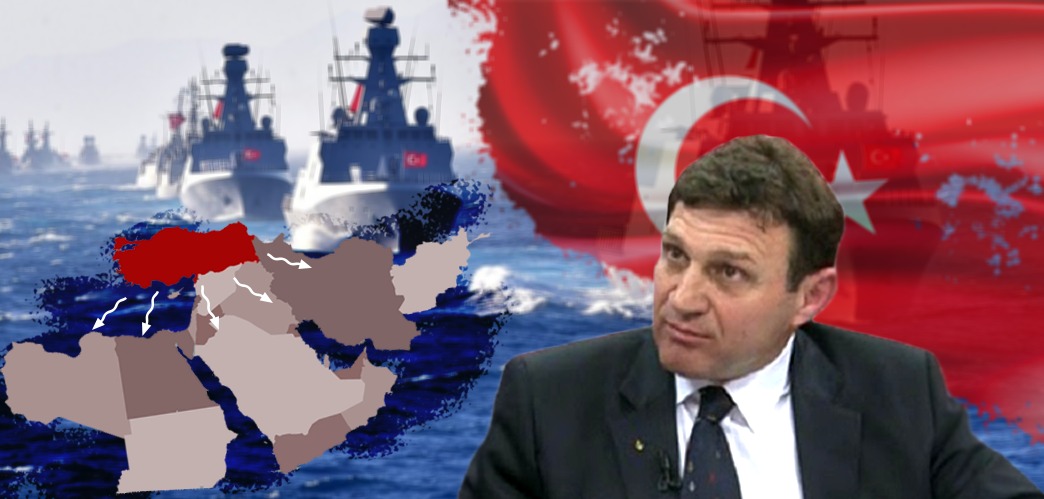Alwaght- Former Turkish Rear Admiral Turker Erturk said Erdogan government's foreign policy is based on an “outdated ideology,” and "is a source of instability" for the world.
General Erturk made the comment in an interview with The Cradle news website about the most pressing foreign policy issues facing Turkey at the present time, saying Ankara’s international relations are such a mess and that the Turkish president is to blame for the “erratic” situation.
“I think that the foreign policy pursued by the Erdogan government today is a source of instability for our country, for our region, and for the world,” Erturk said.
“The government has an outdated ideology,” the former army commander added. “There have been significant dilemmas and contradictions in Turkey’s foreign policy. A major reason is that the foreign policy pursued by Turkey is not interest-oriented or science-oriented.”
Referring to Turkey’s positions in Syria, Libya and the Eastern Mediterranean, Erturk said, “Erdogan sent Turkish soldiers and proxy fighters from Syria to Libya. That policy failed in Syria. In the case of Libya, Erdogan presented the operation to support the Muslim Brotherhood as a ‘national operation.’ Except this was not a national project. It was a project to support an outdated ideology.”
Erturk touched on Ankara’s position about Eastern Europe and the Black Sea region, criticizing the government’s cautious stance in the latest exercises of the US-led military alliance of NATO in the region.
“Turkey knows what the US wants to do in the Black Sea. It knows they want to encircle and destabilize Russia,” he said. “Unfortunately, the Turkish government went ahead and supported Ukraine, opened credit lines, created initiatives on unmanned aerial vehicles in order to win US favor. All of this works against Turkey’s interests.”
“What is the Turkish government trying to do now? It’s flirting with the US. That would be wrong. Although Turkey is in NATO, it used Montreux as leverage during the Cold War and did not turn the Black Sea into a sea of conflict,” Erturk said, referring to a 1936 agreement restricting the passage of naval ships not belonging to Black Sea states.
“However, the government allows Erdogan to try and win US favor. But, of course, they had to be a little indecisive and careful. Because their previous moves brought the swings [with the Russians]. They also know that if they are thrown to the opposite side again, there may be no turning back.”
Drawing an analogy between Ankara’s inclination to the West and alienation from the East, Erturk said, “When you are young, you pretend to have another relationship to make your ex-lover jealous so you can win her back. Turkey uses Russia or the ‘East’ as a counterweight to prove their indispensability to the West.”
The former Turkish army commander also pointed to the pullout of American forces from Afghanistan after 20 years and US President Joe Biden’s plan to “leave Turkey there while they were withdrawing.”
“Erdogan’s government has cornered Turkey, and is now sending our soldiers to die for the country’s political survival. And sending troops to Afghanistan will not be enough. Turkey is under heavy blackmail,” Erturk stressed.
“In the past, Erdogan could have said to Biden, ‘I’ll do whatever you want, but I can’t get it through parliament’ or ‘I could have done that but the Turkish military objects.’ Or he might say, ‘I could have done that, but the judiciary would have prevented it.’ Does he have the strength to say such a thing now? Nope. Today, Turkey is like a truck with a faulty brake.”
Asked in what way Turkey’s military adventure in Afghanistan will affect its relations with Russia, China and other countries in the region, Erturk said, “Turkey’s relationship with Afghanistan goes back to the early 1920s. Turkey is putting these relationships at risk.”
Erturk served as the Black Sea Region Commander from 2006 to 2008, commanding three warships and heading Turkey’s Naval Forces Command and Control Department.
He concluded his military career as the Commander of Turkey’s Naval Academy in 2010.



























